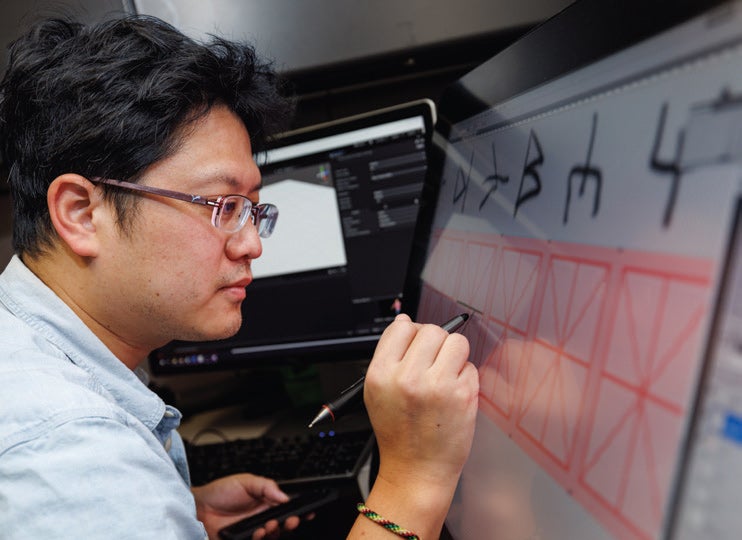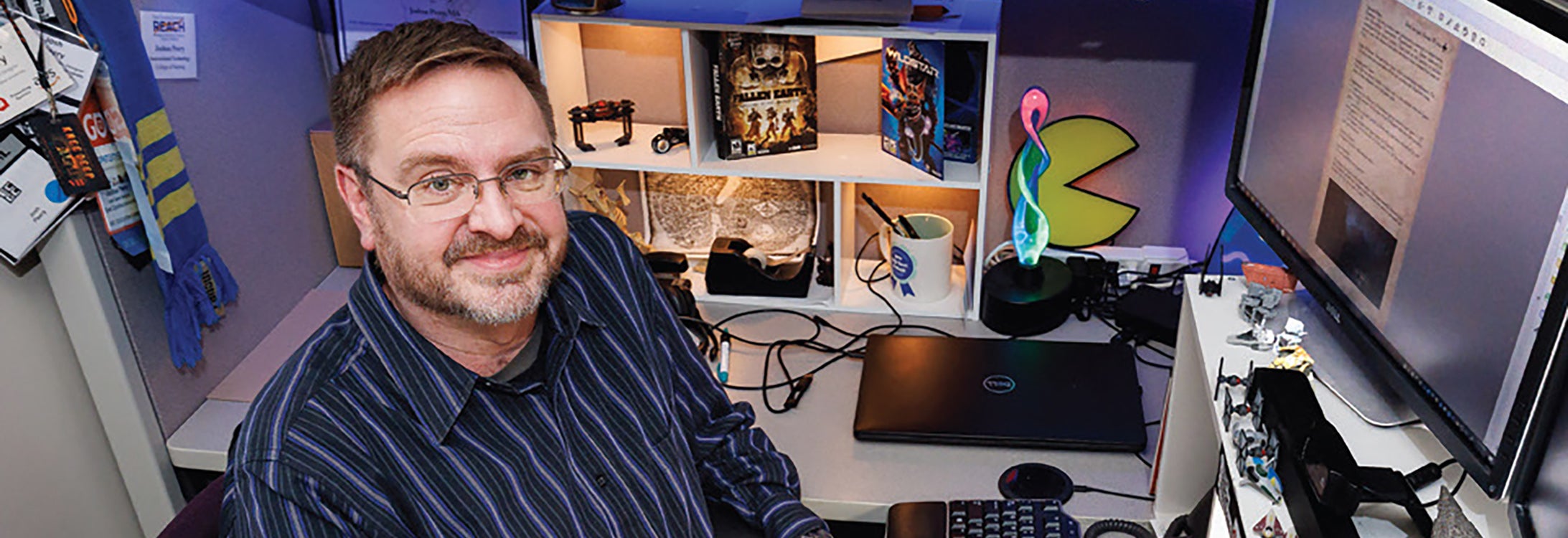Game uses tech to teach nursing, medical students
Sometimes gaming doesn’t mean playing a game. For example, serious games, said Josh Peery, a game designer and instructional technology consultant for the ECU College of Nursing, are those that don’t have entertainment as the primary goal but rather education, training or awareness.
Peery is not a game developer by training, but his graduate education in English and film gave him entree into the gaming world because he understood how to develop a story and manage complex projects.
“When this job presented itself, they needed someone who could speak to the faculty and understand research and things of that nature,” Peery said. “So that’s where my degree came into place.”
His research focuses on the gamification of nongaming spaces, such as online shopping and user experience. Serious games are best suited for the space between a person having no knowledge about a subject and being at a point of mastery of that subject.
Student needs in this stage are repetition and novelty. In the virtual clinic gaming space, a nursing or medical student can repeat a simulated office visit as many times as necessary. While there are other off-the-shelf games nursing and medical schools use, in those the player has free rein to perform unnecessary medical procedures.
“You could have someone come in with a broken arm and you could give them a colonoscopy — wildly inappropriate and not even necessary — but the commercially available games would allow you to do that,” Peery said. “A serious game is going to limit those choices so the learning is guided rather than just throwing the kitchen sink at you.”

Kuan-Hung Chen, an IT consultant with the College of Nursing, works on graphic elements of a virtual reality game used to teach students.
Pamela Reis, the department chair of nursing science and Ph.D. program director, tasked her students with developing the narrative structure for a virtual appointment with a patient. “It’s a good way for students to organize their thoughts without judgment,” she said. “The virtual clinic is a way to present students with cases that they’ll see in clinical practice in a nonthreatening environment, although it is somewhat threatening because the grade is associated with it.”
Lindsey Lang ’23 of Durham was a registered nurse before being accepted at the Brody School of Medicine. She built four cases.
“Josh took me through the gaming structure of how to input the information, build the characters and input background information,” she said. “When I was in nursing school, it was a lot of didactics. We would have some simulations, but now having more simulations is helpful. One thing COVID has taught us is doing more things virtually has been a benefit to our education.”
– Benjamin Abel
